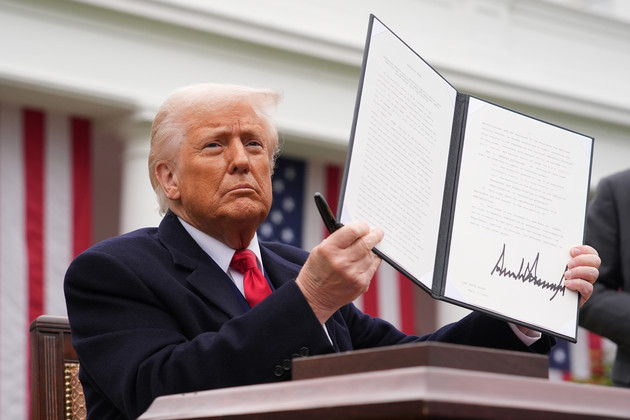Kenya has avoided inclusion in a sweeping new wave of import tariffs imposed by United States President Donald Trump, which targets 69 countries with higher duties starting in seven days. The decision, outlined in a presidential order, marks a significant shift in U.S. trade policy and raises concern about the impact on global markets.
In the official statement, President Trump said the action was necessary to address what he called a “national emergency” linked to trade imbalances and security concerns, citing Executive Order 14257. The new ad valorem duties will range from 10 to 41 per cent, depending on the country, and will affect a broad spectrum of exports to the U.S.
“Some trading partners failed to engage in negotiations with the United States or to take adequate steps to engage on economic and national security matters,” Trump said, justifying the move. He added that even among countries that did negotiate, many offered terms that “do not sufficiently address imbalances in their trading relationship.”
Notably, Uganda is the only East African country to face the new tariffs, with a 15 per cent rate applied. Kenya’s exclusion suggests it remains in good standing with Washington, potentially due to its ongoing bilateral cooperation and economic engagements with the U.S., including the Kenya-U.S. Strategic Trade and Investment Partnership (STIP) talks.
Elsewhere on the African continent, South Africa, Algeria, and Libya face steep 30 per cent duties, while Tunisia will contend with 25 per cent. A broad group of countries, including Nigeria, Ghana, Angola, and Mozambique, will face 15 per cent tariffs.
Globally, Syria tops the list with a 41 per cent tariff, followed closely by Laos and Myanmar at 40 per cent. Switzerland will be hit with 39 per cent, while Iraq, Serbia, and Bosnia and Herzegovina face between 30 and 35 per cent.
Even countries not explicitly listed will not escape unscathed, as all remaining nations will be subject to a general 10 per cent import tax.
The tariffs are expected to spark pushback from affected countries and may result in retaliatory trade measures, further straining global economic ties.

